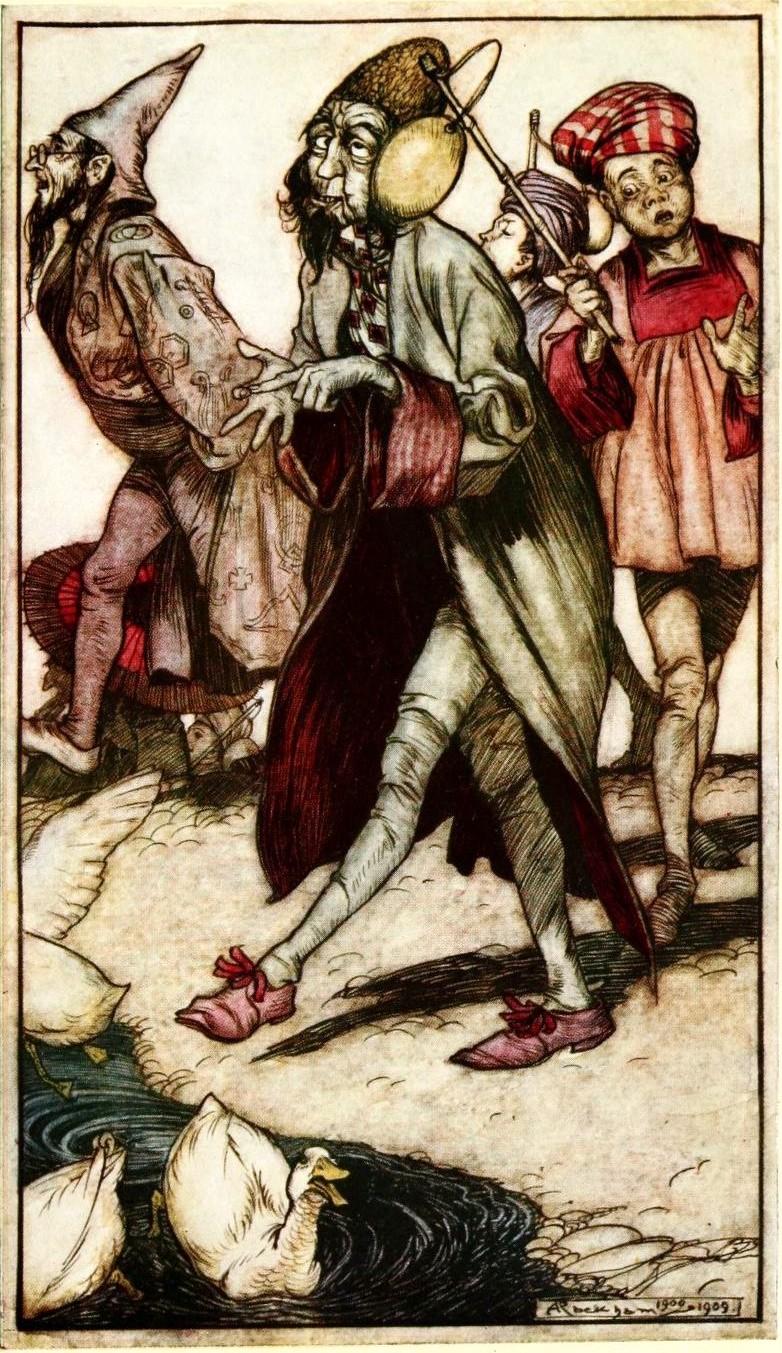 |
"I observed, here and there, many in the
habit of servants, with a blown bladder, fastened like a
flail to the end of a stick, which they carried in their
hands. In each bladder was a small quantity of dried
peas, or little pebbles, as I was afterwards informed.
With these bladders, they now and then flapped the mouths
and ears of those who stood near them, of which practice
I could not then conceive the meaning. It seems the minds
of these people are so taken up with intense
speculations, that they neither can speak, nor attend to
the discourses of others, without being roused by some
external taction upon the organs of speech and hearing;
for which reason, those persons who are able to afford it
always keep a flapper (the original is climenole) in
their family, as one of their domestics; nor ever walk
abroad, or make visits, without him. And the business of
this officer is, when two, three, or more persons are in
company, gently to strike with his bladder the mouth of
him who is to speak, and the right ear of him or them to
whom the speaker addresses himself. This flapper is
likewise employed diligently to attend his master in his
walks, and upon occasion to give him a soft flap on his
eyes; because he is always so wrapped up in cogitation,
that he is in manifest danger of falling down every
precipice, and bouncing his head against every post; and
in the streets, of justling others, or being justled
himself into the kennel."
|
